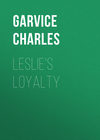Czytaj książkę: «Wild Margaret», strona 21
CHAPTER XXVII
Prince Rivani opened the door with a low bow, and the two men went back to the salon. The prince was pale but perfectly self possessed, and Blair very grave and quiet. The picture still floated before his eyes: the great black rock and the white, wan figure still stretched upon it, almost in the grasp of the cruel waves. His Margaret! Who could have painted it? And the prince had said that the picture had made the artist famous! He must find out that artist and get at the bottom of the mystery.
The salon was fuller than when he had left it, and he went and sat down in a quiet part of the room to wait until the prince had made some excuse for openly giving a reason for the duel of the morrow.
So he sat in his corner, outwardly calm and self-possessed, but thinking a great deal more of Margaret than the duel.
Presently Blair saw a tall, patrician man, with long hair and a beard, and the unmistakable air of an artist, enter the room, and absently noticed that he was instantly surrounded. He caught the name – it was Signor Alfero, the great artist; and scraps of the conversation floated to Blair's corner.
Suddenly he started. They were talking of the picture; he leaned forward and listened intently.
"What have you done with the masterpiece, prince?" Blair heard him ask.
"It is in my writing-room," said Prince Rivani.
"Oh, that is a pity! You should not deprive the world of a sight of its great treasures, mon prince."
"You still think as highly of Miss Leslie's picture, then, signor?" asked a gentleman.
"As highly? – more!" said the old man, turning promptly. "The more I see of it, the greater my astonishment grows that a woman so young could have painted a picture so old."
"So old?"
"Yes. We measure the age of a picture by the age of the thought it contains. There is a lifetime of suffering, and love, and despair in the face of the girl on that rock. Miss Leslie must have felt all that – ay, every heart-pang of it – before she could have painted it. It is – I repeat my verdict – a marvelous picture! She will, I trust, live to paint many other great ones; but never one that will go straighter to the heart than this."
"Where is Miss Leslie now?" asked another gentleman. "One sees and hears nothing of her."
"Because you do not go where she goes, signor. Miss Leslie is never seen in the promenade; you may drink your afternoon tea in all the palaces of Naples and not meet with her. But I venture to prophesy that if you will penetrate the slums of the city, the fever haunts, in which our poorest of the poor are awaiting the peace bringer, Death, you will find the great artist in their midst."
There was silence for a moment.
"Miss Leslie is a – philanthropist, then?" said the gentleman.
"She is a ministering angel," responded Signor Alfero, simply.
The prince stood by, white to the lips.
"What time she can spare from her work – and she works as hard as any seamstress in the city! – she spends amongst the poor. There is not a beggar in our streets who does not know her; not a blind man whose ears do not eagerly greet her footfall; not a sick child whose face does not 'lighten' at the sight of her smile. She is an artist – and an angel!" and the old man's lips quivered.
As if he could bear it no longer, the prince stood upright and approached Blair, his face white and set with the effort to suppress his thirst for vengeance.
"Referring to our discussion, Lord Ferrers," he said significantly, "are you still of opinion that we Italians have taken but a low place in the scale of nations?"
Blair started and looked up at him in surprise, then, understanding that the prince was going to make pretense of a quarrel, he replied:
"I cannot alter my opinion, even for so distinguished an Italian as Prince Rivani."
"That means that, as an Englishman, you regard us with contempt, my lord?"
Blair shrugged his shoulders.
"Your highness is at liberty to place any construction upon my words you please," he said.
"Thanks, my lord. Even if I assume that you charge us with cowardice?"
"Choose your own signification, prince," said Blair, beginning to grow warm, though it was only pretense.
"A nation of cowards!" said Prince Rivani, his eyes glittering at the success of the play. "That is a brave assertion; has the Earl of Ferrers courage to maintain it by the only consistent and appropriate argument?"
"I can maintain it at the sword's point, if necessary," said Blair, rising to his full height, and meeting the prince's deadly gaze with a steady, calm regard.
The prince bowed low, then turning slightly to the rest, said in a low, clear voice:
"Gentlemen, I call you to witness that the cause of quarrel is mine! Lord Ferrers has accused my country-men of a base and vile cowardice. I shall have the honor of defending them. As the Earl of Ferrers says, the argument is not one for words, but weapons! Is that so, my lord?"
"Your highness interprets me correctly," said Blair.
"Good! My friend, General Tralini, will have the honor of waiting upon your lordship at a later hour."
The prince drew him apart.
Blair got his crush hat and cloak, and approaching the prince, bowed low, then, with a general salutation, he left the room.
It was a lovely night, and the air blew upon his brow refreshingly, after the heat of the salon.
He paused outside the great doorway, and stood looking up at the sky – it was probable that it was the last time he would have the opportunity of seeing the stars.
Then he drew his cloak round him, and was going onward, when a woman, who had been coming down the street with her head bent and her face almost hidden in the thin shawl she hugged round her, stopped, and seeing him, held out her hand, murmuring something in broken Italian.
Blair stopped and looked at her absently; then he started, and taking her arm, drew her near a lamp.
"Lottie!" he said.
She flung her hands before her face and bent her head, almost as if she expected him to strike her.
The gesture amazed Blair.
"Lottie, Lottie!" he said, encouragingly; "it is you, then? I saw you this evening in the streets, my poor girl. But why do you shrink from me? What is the matter? Don't you know me – Blair?"
"Yes, yes!" she gasped. "I know you. I – I – Oh, Blair, don't kill me!"
"Kill you!" he exclaimed, with astonishment. "Why, Lottie, what is the matter with you?"
He took her arm as he spoke and drew it through his.
"You look ill. Lean on me. Don't be afraid."
She tore her arm from his and, shrinking back, leaned against the lamp-post, the light flashing on her face and revealing it in all its haggardness.
"Don't! – don't!" she said, with a catch in her breath. "Don't speak a kind word to me; I don't deserve it! Oh, Blair, if you knew all I've done – "
He sighed.
"Never mind, Lottie," he said, gently; "I'm afraid we have all done rather badly. But I'm sorry to see you looking so ill. Where are you staying? What made you come here? Come, tell me all about it."
"I can't! I can't!" she said, with a shudder and a fearful glance at his grave face. "I came here with a theatrical company – I got ill, and left behind. I wrote to him and asked for help, and he only threatened me – "
"Him! Who?" demanded Blair soothingly, for he began to think that illness and privation had turned poor Lottie's reason.
She shuddered and caught her breath.
"Austin Am – " she said, then stopped and looked up at him in sudden terror.
"Austin!" he exclaimed. "You wrote to Austin, and he – Oh, come, Lottie; that can't be true! But why didn't you write to me?"
"To you?" she breathed; "to you? Oh, Blair, Blair; if you only knew, you'd kill me where I stand!"
"Nonsense!" he said with gentle reproof. "Don't be silly, Lottie. Look here, you are weak and upset, and not in a fit state to tell me your story. Come to the palace, where I live, to-morrow, and let me hear all about it. Here is the address," and he tore a page from his pocketbook and wrote on it. "There it is. Now, mind you come; I shall be in all the morning – " Then he stopped, for it suddenly flashed upon him that probably he should be where Lottie could not follow him. "Stay!" he said; "tell me where to find you, and I will come to-morrow – if possible."
"No!" she said with a shudder; "I will not! Go on and leave me, now."
"No, I won't," he said, and his voice sounded like the old Blair's in its hearty good-nature; "I shall stay here till you do tell me; and I warn you that we are keeping my wife up – "
She started and sprung back.
"Your wife!" she gasped. "Has she – has she come back?"
Blair turned pale, then forced a smile.
"My wife has not left me that I know of," he said. "I married Miss Violet Graham; you knew her, Lottie?"
"Violet Graham!" she panted. "Violet Graham! Oh!" and she put her hand before her eyes.
"Yes, and she is with me here at Naples, she and Austin Ambrose," he said. "He will be glad to see you and tell you that there is some mistake in your idea that he had refused to help you."
"She and he here!" she exclaimed hoarsely. "What does it mean? I can't think! I can't see what he wanted! It is all dark – all dark! Blair!" she exclaimed, seizing his arm. "That man – I tell you – I warn you! Oh, Blair, Blair! Take care! He means – " She broke off and almost groaned. "I don't know what he is working for, what he is plotting, but it is no good – no – " She stopped again and drew her shawl round her.
"Whom are you talking about Lottie?" he asked. "Not Austin! Why, he was a friend of yours, and is one of the best fellows alive! My poor girl, what 'bee have you got in your bonnet?' What do you mean?"
"Nothing, nothing!" she said, breathlessly. "I am half mad with cold and hunger – "
"Yes, yes," he said, gently. "See here, Lottie; here is some money – get food and a lodging for to-night. Go to the Hotel Nationale. I will come to you to-morrow and you shall tell me all about it," and he held out some English sovereigns.
She looked up at him with a kind of wild horror, then with a cry of remorse, a cry that rang in his ears for hours afterward, she sped away. He threw off his cloak, and started after her, but she had gained one of the entrances to a network of dark and narrow courts, and Blair lost her as completely as if the pavement had opened and swallowed her up.
Lottie was not far off. Hidden in one of the deep doorways, she had watched him relinquish the pursuit; then, as if compelled to follow him, she crept out, and gained the large street again.
As she passed the Palace Augustus, the guests of the conversazione were coming out, and she drew back into the shadow of the doorway to let them pass.
They were all talking in an excited fashion, and two Englishmen, pausing quite close to the trembling girl, were speaking loudly enough for her to hear.
"Rum kind of thing this affair to-night," said one.
"Isn't it? But it's just what one expects in Italy. Gives quite a foreign flavor to the evening," and he laughed cynically. "Fancy two men fighting a duel on such a paltry excuse as that! Why, I didn't hear anything particularly offensive, did you?"
"Not half so offensive as one hears fifty times over at a political meeting in England."
"But then these Italians are all fire, aren't they? And glad of the excuse for a shindy, eh?"
"Poor Blair!" rejoined the other, with a sigh. "Seems rather hard when you are an earl, with goodness knows how many thousands a year, and a charming wife, to be spitted by a fire-eating Italian. But, there, we all prophesied that Blair Leyton would come to a violent end; either a cropper in the field, or the racecourse."
"That's all right and consistent enough, and would appear to be the logical conclusion of such a man; but to be pierced through the heart with one of those confounded needles! Bah! And he is such a fine fellow, too! Never saw a better made man! Don't wonder all the women of his set were mad about him!"
"Yes, Blair is a good type of our best men," said the other. "But he may not fall: he used to fence awfully well in the old days, at Angelo's fencing-school, don't you know."
"I dare say, but fencing at Angelo's is a very different thing to crossing swords with a man like Rivani, especially when he means mischief, and if Rivani didn't mean mischief to-night, then I'm no judge of a man's looks."
They passed on, and left Lottie amazed in her ambush.
Blair and Prince Rivani to fight a duel! She had been in Naples long enough to have heard of Prince Rivani's reputation as a swordsman. Blair was as good as a dead man when he stood opposite the prince's gleaming steel.
What should she do? What could she do?
Half wild, she stood wringing her hands, her black eyes gleaming with terror and despair, then, suddenly, worn out and exhausted by privation and the excitement of her meeting with Blair, and this subsequent discovery, she fell to the pavement in a deep faint.
CHAPTER XXVIII
Mr. Austin Ambrose was pacing up and down, in tiger fashion, the extremely luxurious sitting-room, waiting for Blair to return from the Rivanis'; and Austin Ambrose was anything but tranquil and at ease.
Hitherto fate had played into his hands so completely that he had run his career of villainy as smoothly as a well-oiled piston-rod works in its cylinder, but the sight of Lottie in Naples, close to his elbow, rather upset him.
The countess had gone to her boudoir some half an hour since; but she had languidly dropped a few words indicating that she intended remaining up for Blair, and Austin Ambrose listened intently now and again to hear if Blair went straight to his or her room.
Presently he heard a step upon the stairs; it was Blair's, but heavier and slower than usual, and it stopped at Austin's door, and Blair knocked.
Austin was almost guilty of an exclamation of surprise as Blair entered, for he handsome face looked so haggard and wearied that it might have been the face of a haunted man.
"You're late," he said, speaking lightly. "Had a pleasant evening, I hope?"
Blair sank into a chair, and his head drooped upon his breast; then he looked up and motioned to the table, on which stood a liqueur stand.
"Mix me something – anything, there's a good fellow," and his voice was dry and hoarse. "A pleasant evening," he laughed grimly, "you shall judge for yourself. Austin, I have seen Lottie Belvoir!"
Austin Ambrose started, and he set the glass down with a little thud. Then he smiled.
"Not really!"
"Yes. I was right, and you were wrong; it was she whom I saw. Poor girl! Lottie – who used to be the brightest and gayest of them – in Naples, starving and in rags."
"It is very strange! The last I heard of her," said Austin, his face pale with suppressed excitement and fear, "she was traveling with a dramatic company. Did she tell you – "
"She would tell me very little or nothing," said Blair with a sigh.
Austin Ambrose drew a long breath. Lottie had stood firm, then!
"Little or nothing. Austin," suddenly, "did she ever apply to you for help?"
"To me?" he exclaimed, raising his brows. "Certainly not! Why do you ask?"
"Because she said that she had, and you had refused to assist her. But she was dreadfully incoherent, and I'm afraid that privation and trouble have upset her reason. She, poor girl, seemed possessed by some wild idea that she had injured me. She even feared that I should – strike her! When I offered her some money, and begged her to tell me where I could find her, she turned and bolted, and I lost her."
Austin Ambrose drew a breath of relief and mixed himself some brandy and water.
"Poor Lottie, she must be half mad! Thought she had injured you! Why, how could she do that?"
Blair shook his head.
"By no way that I know of. She behaved very strangely all through. She must be found to-morrow."
"Of course; and there's nothing easier. Don't make yourself uncomfortable about it, my dear Blair. I will set the police on her track at once, and we'll soon find her. But the meeting with poor Lottie hasn't spoiled your evening, I hope?"
Blair was silent for a moment, then he said, in a low voice:
"No, no; it was not that, painful as it was. I wish to Heaven it was no more! But – but – Austin, I have seen poor Margaret!"
Austin Ambrose sprung to his feet, and his hand slid like a snake into the bosom of his coat.
"Seen – seen – !" he exclaimed, hoarsely.
"Yes," said Blair, whose back was turned toward him, and who did not see his white face and the movement of his hand; "yes, I have seen her in a picture."
Austin Ambrose dropped into the chair again, and lifting the glass to his lips took a good draught.
"In a picture, my dear Blair! You – you startled me! In a picture! A face that resembled hers. My dear old fellow, you are too sensitive. You must, really you must, fight against these feelings. They are ruining your life. In a picture – "
"Yes; not a face like hers, but her very own. I saw a picture" – and he stood and held out his hand as if he were pointing to it – "of Margaret, of my poor darling herself – lying on the Long Rock at Appleford!" his voice broke, and he turned away.
Austin Ambrose looked at him.
"He is going mad!" he thought.
"My dear Blair, impossible! This is the freak of a mind overwrought by sorrow and too much dwelling on the past. It is impossible. Where did you see this wonderful picture? I should like to see it."
"I saw it at Prince Rivani's. You can see it, no doubt. Do you think I am dreaming? That I have conjured the picture from my own imagination? Do you think I am going mad?"
Austin Ambrose certainly did think so, but he said:
"No, no; certainly not. But – but – "
"You do think so. Let me give you direct evidence that I know what I am about," said Blair. "The picture is Prince Rivani's; he took me to his private room to see it; it is the talk of all Italy, Europe, for what I know. It is a magnificent picture, terrible, moving, to any one; but judge what effect it must have had on me when I say that it was the place itself, the face and figure themselves of my poor lost darling."
Austin Ambrose stared at him.
"And Prince Rivani showed you this! What did he tell you about it, its history and so on?"
"Nothing," said Blair, gloomily. "I was so startled that I was almost beside myself, and I was about to ask him the history of the picture, and by whom it was painted, when he – you will think I am mad now, Austin! – refused to tell me anything excepting that the picture was a famous one. And he brought the interview to an abrupt conclusion by challenging me to fight him – "
Austin Ambrose's face worked.
"Which you refused?" he said.
"For which I asked his reasons. He declined to give me any one, calling me a liar, and so – " he laughed, grimly – "provided me with an excuse for shooting him!"
"Well, and – and the artist, who is he?"
"It was not a man, but a woman – a girl," said Blair quietly and wearily.
Austin Ambrose started, and his eyes flashed. He saw it all in a moment. The picture had been painted by Margaret herself! The prince had fallen in love with her, she had told him her story, and the prince meant to avenge her.
"And – and this girl – this wonderful artist – where is she?"
He asked the question lightly enough, but his soul quaked as as Blair replied:
"Here, in Naples!"
"Here, in Naples?"
There was a moment's silence. Margaret here in Naples! Blair challenged by the prince! Any moment and his astute plans might be shattered at his feet.
He was not altogether a coward, but at the thought of the two narrow chances Blair had had of learning his – Austin's – villainy, he quivered from head to foot.
"And now you have it all," said Blair quietly. "Why Prince Rivani should want to fight me I cannot conceive, can you?"
"Yes," was the prompt reply.
Blair turned to him with weary surprise.
"The prince was an old lover of Margaret's."
The blood rushed to Blair's face, and his eyes flashed.
"An old lover? It is you who are mad! Margaret had no lover but me."
Austin Ambrose met his fierce gaze steadily.
"My dear Blair, I meant no kind of reproach against her! But think, is it not possible that the prince may have seen her before she met you? that, though nothing tangible may have passed between them, he may have fallen in love with her?"
"And she not tell me! Ah, how little you knew her!"
"She may not have thought it worth the telling! May have feared that you might think she was boasting of her conquest over a prince. But if you won't entertain this idea, what other reason can you find for his wanting to fight you? You know what these Italians are: they will fight for an idea – half a one! He may have got some inkling that you were her favored lover, he cannot possibly know that you married her, but he may see in you a rival, and these Italians consider it their duty to dispose of a rival in the most complete and expeditious way."
Blair leaned his head upon his hands.
"It is all a mystery," he said, wearily. "But the fact remains. I have undertaken to meet him to-morrow morning. You will be my second, of course, Austin? A General Somebody or other will call and make the arrangements presently."
Austin Ambrose got up and went to the window and rapidly mastered the situation. After all, Fate was working for him to the end! If the Prince Rivani would kindly kill Blair how easily the denouement would work out!
"I don't like this!" he said gloomily. "I am not thinking of myself, nor so much of you – for you are good at sword or pistol – but I am thinking of Vio – of the countess."
"Ah, yes!" said Blair with a sigh. "Poor Violet! And yet, after all – " he stopped, but the pause was significant. "I think I must go to the library, Austin," he said after a moment or two. "I have a few letters to write and papers to arrange. I may fall, you know."
"Oh, nonsense!" said Austin Ambrose. "Fall! You may be wounded in the arm, that's just possible – "
Blair laughed grimly.
"If the prince wounds me anywhere it will be through the heart," he said quietly. "He means business, and I shall not balk him. At any rate, I'll have a fight for my life," and with a laugh on his lips he went out of the room.
Austin Ambrose walked to the window and looked out at the night, letting the cold air blow upon his forehead. A fever seemed burning in all his veins. All this had fallen so suddenly that there seemed scarcely time to think: and he had to act, and at once.
He poured out some brandy and drank it slowly; then, after a glance at his face in the mirror, he forced it into its accustomed smooth serenity, and going along the corridor, knocked softly at the countess' boudoir.
She was seated in a low chair beside the fire, her head thrown back, her hands lying listlessly by her side; but she turned with an eager light in her eyes, that died out when she saw who it was.
"Oh, it is you; I thought it was Blair," she said. "Where is he? – not back yet?"
Austin Ambrose bit his lip, and a savage light shot into his eyes.
"Always Blair!" he said softly. "No; he is not in yet."
"And why do you come here at this unearthly hour?" she demanded, pettishly.
"Violet, I have come to answer a question you have often asked me, and I have often parried. I have come to demand of you the reward you have promised me for the services I have rendered you."
She looked up at him in silent astonishment
"Question – reward! What are you talking about? Why do you look so strange?"
"Do I look strange? Forgive me. It is the only time I have allowed my countenance to incommode you. Have you forgotten – is it necessary to remind you of your promise? Is it necessary to remind you for what that promise was given? Ah, yes, I suppose so. Men and women have short memories. Violet, have you forgotten the day I undertook that you should be Blair's wife?"
Her face paled, but she laughed.
"How melodramatic you are. Of course. I was a poor little woman who set her heart upon something, and you were the clever man who offered to help me. Pray do not look so serious."
"I cannot help my looks to-night," he said, quietly, "for to-night you and I stand face to face, soul to soul. Violet, you had set your heart upon gaining Blair, and I have got him for you. You promised me at the time that you would give me whatsoever I should ask, and I told you that some day I should come to claim my reward at your hands. I have come. I will not tell you all I have done for you. You may have conjectured how dark and vile the work has been – no matter. I have succeeded; you have been Blair's wife through my agency. I come to claim my reward!"
She bit her lip and tried to smile.
"Well, well, what is it? It is awfully late, why not wait until to-morrow? Blair may come in at any moment, and though there is no impropriety in our chatting in my own room, still – what is it? Is it money? Are you in difficulties? How much is it?"
"It is not money," he said gravely.
"What, then?" she said, impatiently.
"It is yourself!" he said, his eyes flashing into hers, his pale cheeks suddenly glowing with fire.














